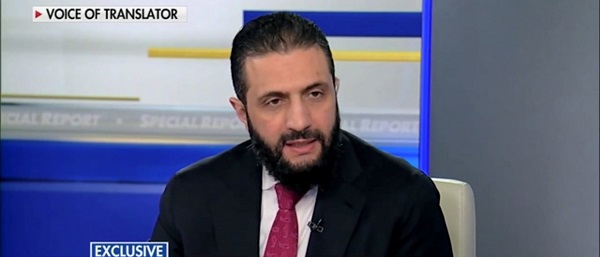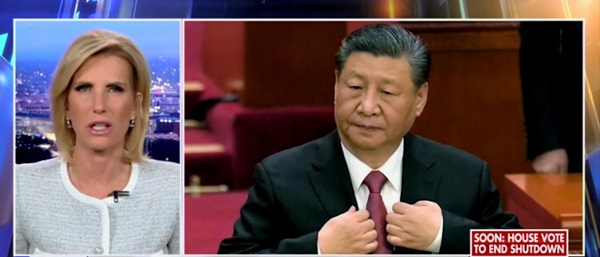Uncategorized
Trump says no new Saudi punishment for Khashoggi murder

WASHINGTON — President Donald Trump said Tuesday the U.S. will not punish Saudi Crown Prince Mohammed bin Salman at this time nor cut arms sales to Saudi Arabia for the killing of U.S.-based columnist Jamal Khashoggi.
Trump called the killing of Khashoggi inside the Saudi consulate in Istanbul a “horrible crime” that the U.S. does not condone, but said Saudi Arabia is a “great ally” and
Trump’s decision, announced in a statement released just before he left for the long Thanksgiving weekend in Florida, will disappoint and anger critics who have called for a much firmer rebuke to the kingdom and especially bin Salman.
U.S. intelligence officials have concluded that bin Salman, the kingdom’s de factor leader, ordered the Oct. 2 killing, according to a U.S. official familiar with the assessment. Others familiar with the case caution that while it’s likely that the crown prince had a role in the death there continue to be questions about the degree to which he was involved.
The U.S. earlier sanctioned 17 Saudi officials suspected of being responsible for or complicit in the killing, but members of Congress have called for harsher actions.
Trump said Tuesday in his statement that the king of Saudi Arabia and the crown prince “vigorously deny” any knowledge of the planning or execution of the murder of Khashoggi.
“Our intelligence agencies continue to assess all information, but it could very well be that the crown prince had knowledge of this tragic event — maybe he did and maybe he didn’t!” Trump said.
“That being said, we may never know all of the facts surrounding the murder of Mr. Jamal Khashoggi. In any case, our relationship is with the Kingdom of Saudi Arabia. They have been a great ally in our very important fight against Iran.”
He said the United States intends to remain a steadfast partner of Saudi Arabia to ensure the interests of the United States. “America First!” he wrote.
Trump said he knows some members of Congress will disagree with his decision. He said he would listen to their ideas, but only if they are focused on U.S. national security.
Late last week, a bipartisan group of senators introduced legislation that calls for suspending weapons sales to Saudi Arabia; sanctions on people who block humanitarian access in Yemen or support the Houthi rebels, and mandatory sanctions on those responsible for Khashoggi’s death.
France’s top diplomat said Monday that his country was mulling sanctions against Saudi Arabia. And Germany on Monday announced that it has banned 18 Saudi nationals from entering Europe’s border-free Schengen zone because of their suspected connections to the killing. German officials, who earlier banned new weapons exports to Riyadh, also said they were halting previously approved arms exports.
Some foreign policy experts have not only recommended tougher punitive measures against Saudi Arabia, but have advocated for a complete reset on relations with Riyadh.
Emile Nakhleh, a former member of CIA’s senior intelligence service, said that since the crown prince assumed power three years ago, he has turned his country into a “strongman autocracy” that can’t be trusted.
“His ruthless power grab, repression of potential challengers within his family, and crackdown on all opposition to his policies and projects inside and outside of Saudi Arabia have put American-Saudi relations at risk,” Nakhleh wrote in an op-ed article Monday in the online intelligence newsletter The Cipher Brief. “He feels empowered to crush his potential rivals within the ruling family by his close relationship to President Trump and Jared Kushner.”
Kushner, the president’s son-in-law, has worked with the crown prince on various issues, including on how to end the conflict between Israel and the Palestinians.
Deb Riechmann, The Associated Press
Uncategorized
Trump Admin Establishing Council To Make Buildings Beautiful Again


From the Daily Caller News Foundation
By Jason Hopkins
The Trump administration is creating a first-of-its-kind task force aimed at ushering in a new “Golden Age” of beautiful infrastructure across the U.S.
The Department of Transportation (DOT) will announce the establishment of the Beautifying Transportation Infrastructure Council (BTIC) on Thursday, the Daily Caller News Foundation exclusively learned. The BTIC seeks to advise Transportation Secretary Sean Duffy on design and policy ideas for key infrastructure projects, including highways, bridges and transit hubs.
“What happened to our country’s proud tradition of building great, big, beautiful things?” Duffy said in a statement shared with the DCNF. “It’s time the design for America’s latest infrastructure projects reflects our nation’s strength, pride, and promise.”
“We’re engaging the best and brightest minds in architectural design and engineering to make beautiful structures that move you and bring about a new Golden Age of Transportation,” Duffy continued.
Mini scoop – here is the DOT’s rollout of its Beautifying Transportation Infrastructure Council, which will be tasked with making our buildings beautiful again. pic.twitter.com/
9iV2xSxdJM — Jason Hopkins (@jasonhopkinsdc) October 23, 2025
The DOT is encouraging nominations of the country’s best architects, urban planners, artists and others to serve on the council, according to the department. While ensuring that efficiency and safety remain a top priority, the BTIC will provide guidance on projects that “enhance” public areas and develop aesthetic performance metrics.
The new council aligns with an executive order signed by President Donald Trump in August 2025 regarding infrastructure. The “Making Federal Architecture Beautiful Again” order calls for federal public buildings in the country to “respect regional architectural heritage” and aims to prevent federal construction projects from using modernist and brutalist architecture styles, instead returning to a classical style.
“The Founders, in line with great societies before them, attached great importance to Federal civic architecture,” Trump’s order stated. “They wanted America’s public buildings to inspire the American people and encourage civic virtue.”
“President George Washington and Secretary of State Thomas Jefferson consciously modeled the most important buildings in Washington, D.C., on the classical architecture of ancient Athens and Rome,” the order continued. “Because of their proven ability to meet these requirements, classical and traditional architecture are preferred modes of architectural design.”
The DOT invested millions in major infrastructure projects since Trump’s return to the White House. Duffy announced in August a $43 million transformation initiative of the New York Penn Station in New York City and in September unveiledmajor progress in the rehabilitation and modernization of Washington Union Station in Washington, D.C.
The BTIC will comprise up to 11 members who will serve two-year terms, with the chance to be reappointed, according to the DOT. The task force will meet biannually. The deadline for nominations will end Nov. 21.
Uncategorized
New report warns WHO health rules erode Canada’s democracy and Charter rights

The Justice Centre for Constitutional Freedoms has released a new report titled Canada’s Surrender of Sovereignty: New WHO health regulations undermine Canadian democracy and Charter freedoms. Authored by Nigel Hannaford, a veteran journalist and researcher, the report warns that Canada’s acceptance of the World Health Organization’s (WHO) revised International Health Regulations (IHR) represents a serious erosion of national independence and democratic accountability.
The IHR amendments, which took effect on September 19, 2025, authorize the WHO Director-General to declare global “health emergencies” that could require Canada to follow directives from bureaucrats in Geneva, bypassing the House of Commons and the will of Canadian voters.
The WHO regards these regulations as “binding,” despite having no ability or legal authority to impose such regulations. Even so, Canada is opting to accept the regulations as binding.
By accepting the WHO’s revised IHR, the report explains, Canada has relinquished its own control over future health crises and instead has agreed to let the WHO determine when a “pandemic emergency” exists and what Canada must do to respond to it, after which Canada must report back to the WHO.
In fact, under these International Health Regulations, the WHO could demand countries like Canada impose stringent freedom-violating health policies, such as lockdowns, vaccine mandates, or travel restrictions without debate, evidence review, or public accountability, the report explains.
Once the WHO declares a “Pandemic Emergency,” member states are obligated to implement such emergency measures “without delay” for a minimum of three months.
Importantly, following these WHO directives would undermine government accountability as politicians may hide behind international “commitments” to justify their actions as “simply following international rules,” the report warns.
Canada should instead withdraw from the revised IHR, following the example of countries like Germany, Austria, Italy, Czech Republic, and the United States. The report recommends continued international cooperation without surrendering control over domestic health policies.
Constitutional lawyer Allison Pejovic said, “[b]y treating WHO edicts as binding, the federal government has effectively placed Canadian sovereignty on loan to an unelected international body.”
“Such directives, if enforced, would likely violate Canadians’ Charter rights and freedoms,” she added.
Mr. Hannaford agreed, saying, “Canada’s health policies must be made in Canada. No free and democratic nation should outsource its emergency powers to unelected bureaucrats in Geneva.”
The Justice Centre urges Canadians to contact their Members of Parliament and demand they support withdrawing from the revised IHR to restore Canadian sovereignty and reject blind compliance with WHO directives.
-

 armed forces1 day ago
armed forces1 day agoCanadian veteran says she knows at least 20 service members who were offered euthanasia
-

 Frontier Centre for Public Policy14 hours ago
Frontier Centre for Public Policy14 hours agoRichmond Mayor Warns Property Owners That The Cowichan Case Puts Their Titles At Risk
-

 Daily Caller2 days ago
Daily Caller2 days agoEx-Terrorist Leader Goes On Fox News, Gives Wild Answer About 9/11
-

 Energy2 days ago
Energy2 days agoFor the sake of Confederation, will we be open-minded about pipelines?
-

 Daily Caller23 hours ago
Daily Caller23 hours agoLaura Ingraham’s Viral Clash With Trump Prompts Her To Tell Real Reasons China Sends Students To US
-

 Business15 hours ago
Business15 hours agoSluggish homebuilding will have far-reaching effects on Canada’s economy
-

 Business1 day ago
Business1 day agoCarney shrugs off debt problem with more borrowing
-

 Automotive1 day ago
Automotive1 day agoThe high price of green virtue









